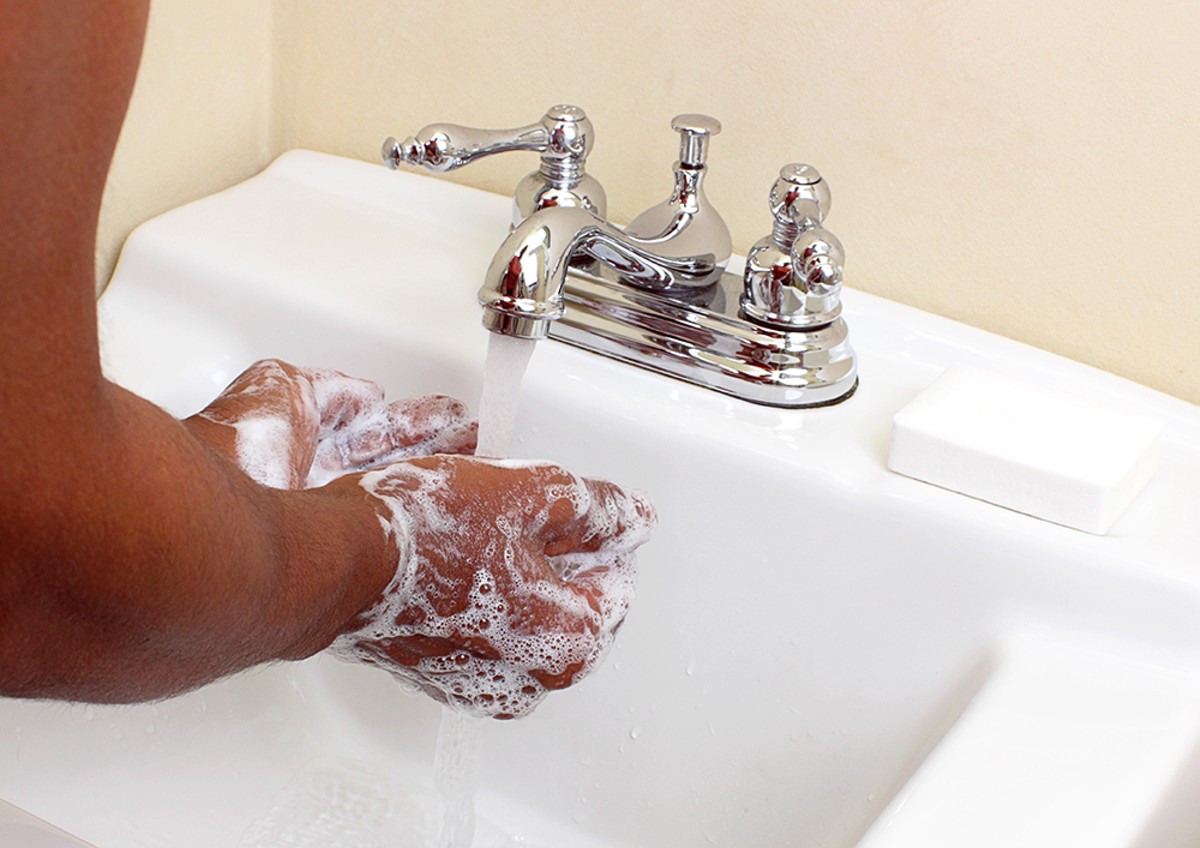Tracey Morris fills her shopping basket to the brim with hand sanitizer, soap, tissues, fruit snacks, nutrition bars, sanitary pads, and a thermometer. With her free hand, she grabs a large package of toilet paper.
"I'm stocking up. You can't be too careful," Morris tells Metro Times during a recent shopping excursion at CVS. "I want to be ready."
Although no one knows how serious the coronavirus is going to be in the U.S., residents and health officials are preparing for the worst.
"The disruption to everyday life might be severe," Nancy Messonnier, director for the National Center for Immunization and Respiratory Diseases at the Centers for Disease Control and Prevention (CDC), told reporters in a recent press call, emphasizing that an outbreak is not a matter of "if" but "when."
So what should we expect in Michigan? Depending on the severity of the outbreak, governments and organizations could close schools and universities, halt mass transit, and cancel sports, entertainment, religious, and political gatherings. Employers could order employees to work remotely. People may decide to stay at home and avoid restaurants, coffee shops, movies, and other places to socialize, which could hurt the local economy. And state health officials have the authority to quarantine people in their homes or medical facilities.
This month's SXSW music festival and conference in Austin, Texas, where many Michigan bands were planning to perform, was canceled because of concerns about the coronavirus. Similar cancellations are expected in Michigan in the near future.
So far, the Mackinac Policy Conference, where hundreds of political and business leaders gather annually to talk politics and the economy, is still scheduled for May.
As of Monday, the coronavirus that began in China has spread to 33 states and Washington, D.C., with at least 446 confirmed cases and 19 deaths. Of Michigan's 28 suspected cases, 26 came back negative, and two were pending.
"So far we have no confirmed cases of coronavirus in Michigan, however we must take steps to ensure every Michigander has access to the care they need to combat the spread of this disease," Gov. Gretchen Whitmer said in a news release Saturday.
Whitmer also announced that Michigan's Medicaid program and many private insurers have agreed to waive the patient costs of a coronavirus test.
But testing kits are in short supply. Michigan only has about 300 testing kits. To avoid running out, the CDC established strict criteria for who can be tested. Patients must exhibit systems and have come in close contact with a COVID-19 patient or traveled to one of the affected geographic areas within 14 days of the onset of symptoms. The CDC lifted those restrictions last week, telling public health officials they may now decide who can be tested.
"Clinicians will work with the local health department to determine if testing is warranted," says Michigan Department of Health and Human Services spokeswoman Lynn Sutfin.
Some states, including California, New York, and Washington, have cautioned they're running out of tests.
On Friday, President Trump drew criticism for wrongly suggesting that "anyone who wants a test can get a test."
As of Monday, the state was actively monitoring nearly 100 sick patients who had not been tested.
Last week, the governor created multiple task forces to help curtail the potential spread of the coronavirus and assess the impact on Michiganders' day-to-day lives.
"This is a strong, smart team that will make protecting our public health their number 1 priority and work closely with me to protect the people of our state," Whitmer said in a news release. "From our public schools, colleges, and universities to our businesses and hospitals, we must harness all of the resources we have to ensure we can prevent the spread of coronavirus and keep Michiganders safe."
On Monday, Detroit officials announced they were restoring water to thousands of homes and offering a moratorium on residential water shutoffs as the coronavirus spreads in the U.S. More than 3,000 homes were without running water because of delinquent bills.
Health officials said the most effective way to combat the spread of the coronavirus is frequent hand-washing. Service will be restored to those homes.
"We know that washing hands is an important defense to this virus, so for the duration of the COVID-19 situation, DWSD is implementing this plan to help make sure every Detroiter has access to clean running water," said Detroit Water and Sewerage Department director Gary Brown in a news release Monday.
Activists, city council members, lawmakers, and presidential candidate Bernie Sanders have been calling for a moratorium.
"The notion that a City could shut off water on people in the midst of a potential infectious disease epidemic — really EVER — is unconscionable," former Detroit Health Department executive director Abdul El-Sayed told Metro Times in a written statement.
In a news release, Whitmer, who declined to impose a moratorium last month, said restoring water was "the right thing to do to keep families safe and protect public health."
Education and local health officials are closely monitoring schools to determine whether to cancel classes in the future. School closures, however, can be very disruptive, especially in lower-income districts. For some students, school is their only source of a warm meal or running water. In addition, many parents don't have jobs with paid time off or the extra money to afford a babysitter for an extended period of time.
The decision to close schools is typically made by districts with input from local health departments. MDHHS is also requesting schools to update the state on absenteeism and any health issues. Local health departments are also tasked with working closely with schools.
Two University of Michigan studies that examined schools' responses to influenza outbreaks found that keeping children at home is an effective way to reduce the severity of outbreaks. One of the studies focused on the 1918-19 influenza pandemic, which killed 675,000 Americans.
"School closing turned out to be one of the most effective firewalls against the spread of the pandemic," one of the study's researchers, Dr. Howard Markel, wrote.
Cities and schools that "acted fast, for lengthy periods of time," he wrote, "had the lowest death rates."
But another University of Michigan study found that schools often wait too long to cancel classes. In response to the 2009 H1N1 influenza, 83% of school closures came "long after the (2009 H1N1) virus had reached its peak week of infection and had already spread widely among those living in those school districts," Markel wrote.
"The results were all too predictable: the late, reactive school closings had little effect on levels of influenza-like illnesses," he concluded.
Some metro Detroit districts, including Detroit Public Schools Community District, Novi Community Schools, and Utica Community Schools have mailed recommendations to parents to keep their children and families healthy. The recommendations include frequently washing your hands, refraining from sharing the same cup or dishes, avoiding contact with a sick person, covering your mouth and nose when coughing or sneezing, and avoiding touching your face.
"We all need to do what we can to keep students and staff engaged in the learning process while mitigating the spread of infections," state schools Superintendent Michael F. Rice and Dr. Joneigh Khaldun, chief medical executive and chief deputy for health at MDHHS, wrote in a letter to teachers, superintendents, and other educators. "Decisions to exclude a student or staff member, or to close schools altogether, must be taken on a case-by-case basis, in coordination with local health departments. These decisions are local in nature and could vary from district to district or school to school."
Residents whose water has been shut off are asked to call 313-386-9727 to get service restored.
Stay on top of Detroit news and views. Sign up for our weekly issue newsletter delivered each Wednesday.







